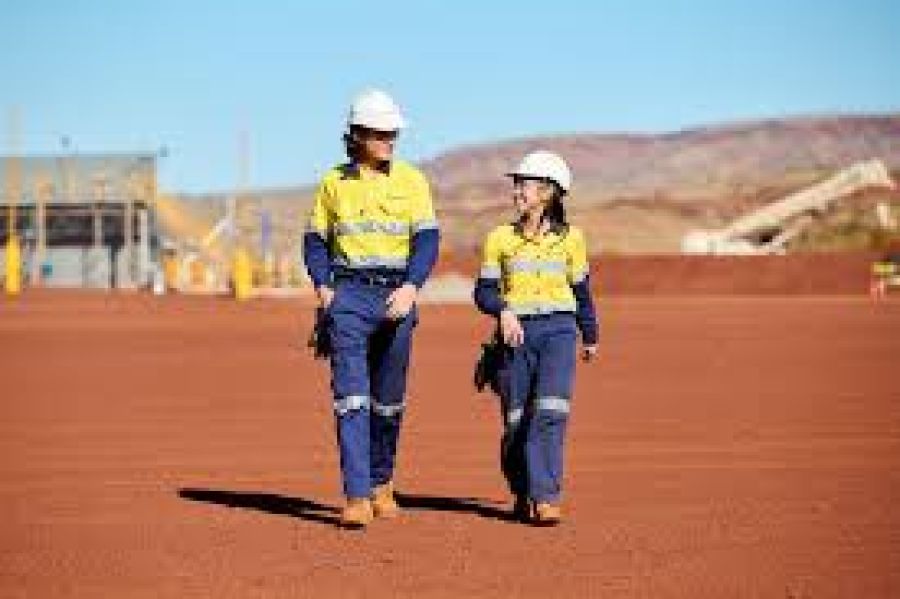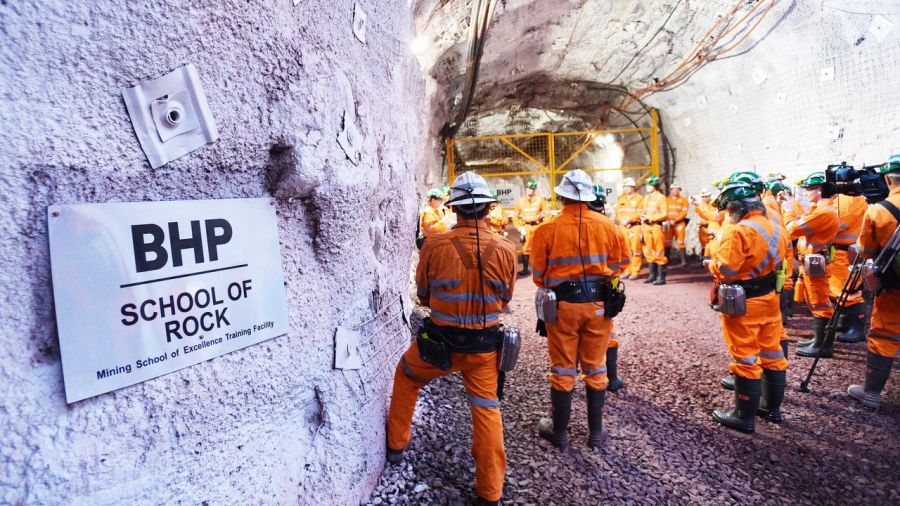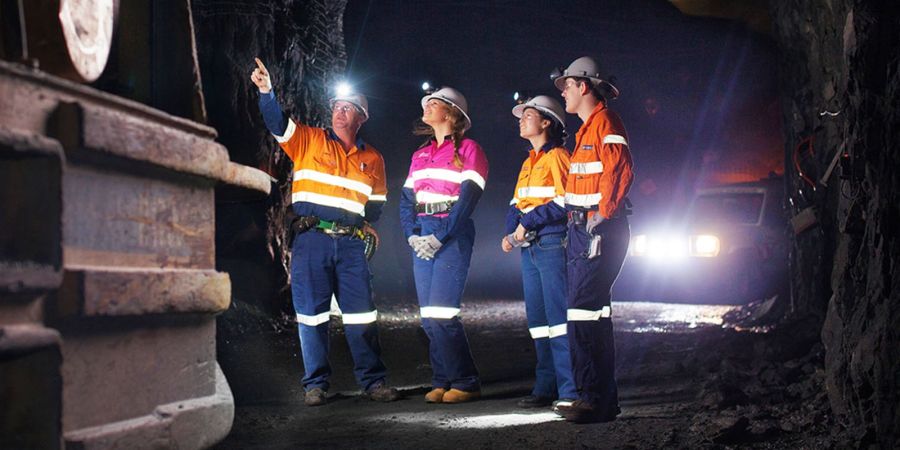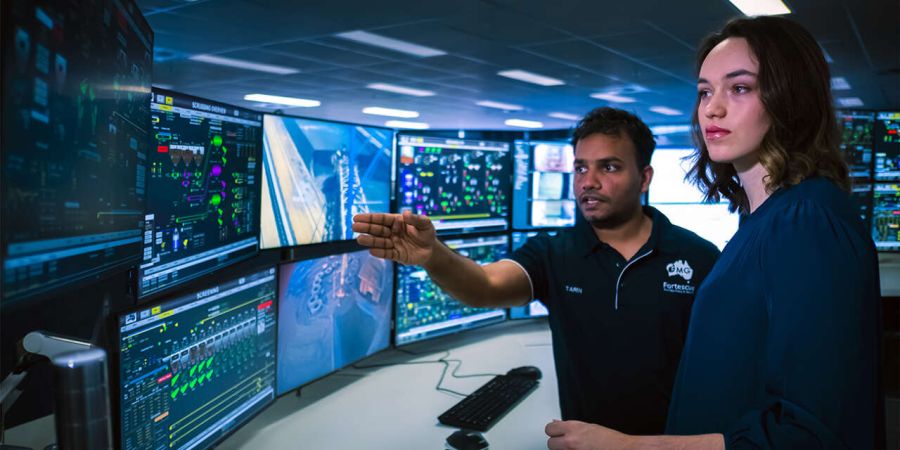Q. What is the best pathway to a career in Mining?
Minerals play an important role in the development and provision of batteries, smartphones and medical devices. Silver, for example is used in mirrors, jewellery, medicine, water purification, solar panels and 3D printing while nickel is essential for food processing, guitar strings, coins, marine engineering, electronics and the kitchen sink. And minerals such as copper, lithium, nickel, cobalt, manganese and zinc, graphite and rare earths are crucial to battery performance, magnets and EV motors.
Mining is a diverse and important industry in Australia that offers many career opportunities for secondary school students. Mining engineers are professionals who design, plan and manage mining operations and projects. They work with various types of minerals, such as coal, iron ore, gold, copper and nickel. Here are some possible educational pathways to a career in mining engineering for an Australian secondary school student, depending on your interests and goals:
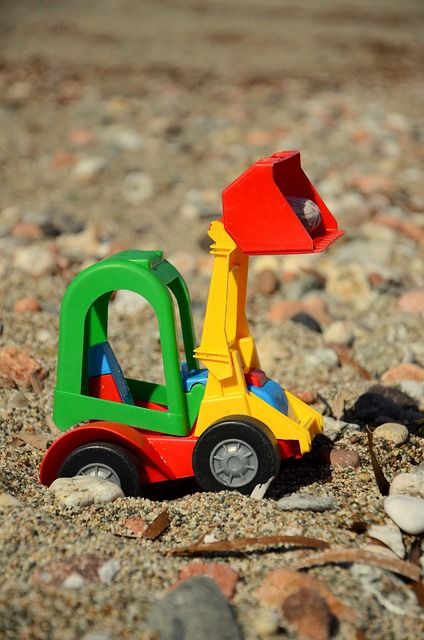
Mine the Opportunities
High School:
QMEA is a highly successful program placing students onto pathways into the resources sector and other science, technology, engineering and maths (STEM) industries.
Australia’s largest and most successful industry-led, schools/industry initiative, the Academy’s programs and experiences broaden students’ and teachers’ knowledge of the resources sector and provide a talent pipeline of employees into VET and STEM-related careers, with a strong focus on female and indigenous students.
Vocational education and training (VET):
You can complete a Certificate III or IV in Surface Extraction Operations, Underground Coal Mining, Underground Metalliferous Mining or Surface Operations Management through a TAFE or registered training organisation.
These qualifications will help you gain practical skills and knowledge in mining operations and safety. You can also pursue an apprenticeship or traineeship with a mining employer and earn a nationally recognised qualification while working.
Bachelor degree:
Postgraduate degree:
You can further enhance your profile as a mining engineer by studying a postgraduate degree, such as a Master of Engineering (Mining Engineering), Master of Philosophy (Mining Engineering) or Doctor of Philosophy (Mining Engineering).
These degrees will allow you to specialise in a specific area of mining engineering, such as mine planning, rock mechanics, mineral processing or mine ventilation. You will also conduct original research and contribute to the advancement of knowledge and innovation in the field.
Frequently Asked Questions

What does a mining engineer do?
Mining Engineers direct the engineering aspects of the mining process. They coordinate the finding and extracting of minerals, petroleum, and natural gas.Duties and tasks
- Conduct preliminary surveys of mineral, petroleum and natural gas deposits
- Prepare operation and project costs and production schedules
- Determine the most suitable methods of ore extraction
- Preparing plans and supervise construction of tunnels and chambers, location and construction of mine shafts
- Prepare technical reports for miners, engineers and managers
- Assess the natural, technical, financial and safety risks of project operations
- Planning and coordinating labour and equipment to meet targets, statutes, safety guidelines and environmental conditions
- Provide solutions to problems related to land reclamation, water and air pollution, and sustainability
NSW mining offers rewarding careers for a whole range of people in high-skilled jobs in mining regions, rural locations and metropolitan areas. That’s because it takes a lot of people in a lot of different jobs to keep our NSW mines working.
There are more than 40,000 people working in mining jobs across NSW. And there are thousands more working in businesses that supply, support, and benefit from our industry.
From chemical engineers and drone pilots to software engineers and lab technicians. Environmental scientists and business analysts to mining engineers, transport operators and safety professionals.
These are the high-value roles that are vital to a strong mining industry in NSW and the economic benefits mining creates.
From SEEK.COM --- How to become a Miner
-
Complete a vocational qualification in Surface Extraction Operations, Surface Coal Mining (Open Cut Examiner), Underground Coal Mining, Underground Metalliferous Mining, or Surface Operations Management through a TAFE or registered training organisation.
-
Alternatively, you may be able to embark on an apprenticeship or traineeship and gain a nationally recognised qualification while working.If you want to work your way up to become a Mine Manager, consider completing a Diploma level qualification in mining management.
A Mineral Council of Australia website.
